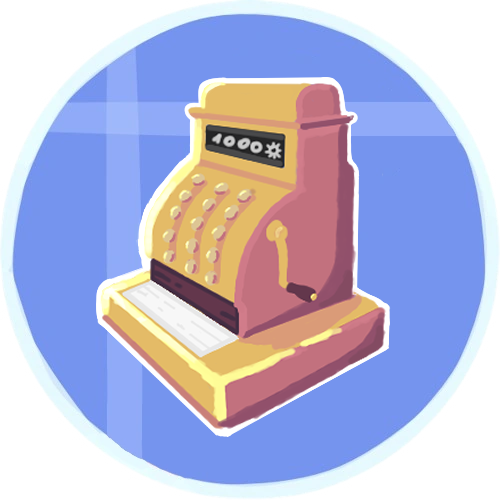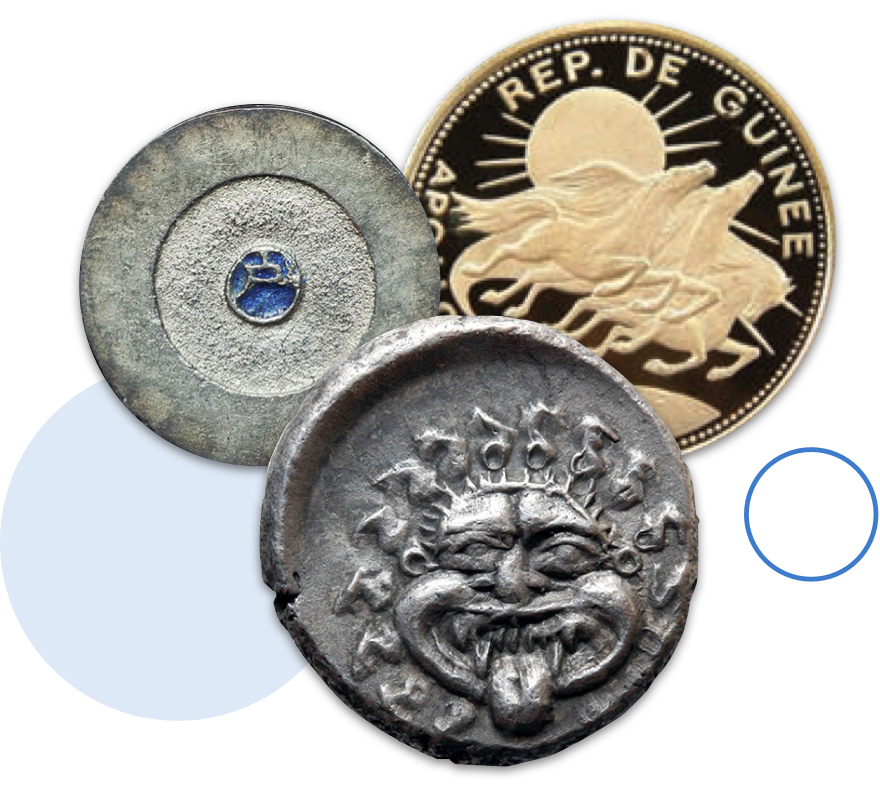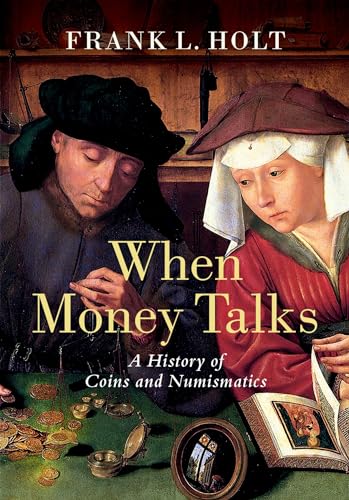Free Advice To Choosing Ringgit And Coin Marketplace
Free Advice To Choosing Ringgit And Coin Marketplace
Blog Article
How Can I Use An Online Database To Do Study About Numismatics As Well As Museums.
Here's a structured approach: Here's how to go about it: Museum databases, like the ones offered by The British Museum, Smithsonian Institution and other online platforms that focus on museum collections or numismatic artifacts are options.
Define Research Focus: Specify your research objectives. Are you interested in a numismatic museum collection or exhibitions featuring coins, scholarly journals related to numismatics? historical and cultural contexts of numismatic display? Find out what you are looking for to guide your research.
Search Strategy: Make use of keywords that are relevant to museums and numismatics like "numismatic collection,"" "coin exhibitions," "museum catalog," and include specific museum names or locations, if applicable. Make use of the advanced search feature to narrow your search according to date or collection type.
Data collection: Access detailed descriptions, images and details for numismatic objects found in museums. Explore online catalogs of coins organized by time period, civilization or thematic.
Examine data to understand the importance of museums and their numismatic collections. Learn the ways museums interpret, curate and present coins within the context of cultural and historical narratives. Compare how different museums display items numismatic. Concentrate on strategies for education in addition to interpretive frameworks and other elements.
Cross-Reference: Ensure the accuracy of your study by cross-referencing data from a variety of museum databases as well as academic sources. This ensures accuracy and completeness of your research and gives you a the most complete view of the numismatics of museums.
Documentation. Document your findings from research by citing sources, and noting the methods used. Note down details such as database used, search terms and their relevance to your research questions.
Be up-to-date Museums and numismatic collections are constantly evolving. Regularly check databases for updates on the latest acquisitions, temporary exhibits, or scholarly publications that could enrich your research.
Follow these guidelines to efficiently utilize databases for examining the numismatics field and how it relates to museums. This will allow you to conduct a thorough investigation into the display of coins as well as their meaning in museums as well as explore them in more scholarly. View the top design blog for site examples including banknote, proof coins, collection, coin engraving, euro, federal reserve, coin marketplace, rare banknotes, coin engraving, collection and more.
How Do I Use An Online Database To Look Up Numismatics In Relation To Coin Dealers?
For numismatic research, it is essential to utilize databases that contain information on dealer listings, market trends, historical transactions, and transactions in numismatics. This is a method that can be structured to conduct this type of research. There are a variety of databases to choose from, including online numismatic exchanges, dealer listings offered by numismatic organizations (like the Professional Numismatists Guild), auction house data bases, or historical archives containing numismatic transaction records.
Define Research Focus: Specify your research objectives. Are you interested to learn about the history and profile of dealers in particular price, market trends, or market developments, or the impact that dealers have been able to have on the numismatic collecting trend? Clarify the focus of your search.
Search Strategy: Use keywords like "coin dealers," "numismatic market," "dealer directories" and add specific names of dealers or geographical regions, if appropriate. Utilize advanced search options to filter results based on date, dealer specialty (such as modern, ancient, and rare coins) or by type of transaction (auctions or private sales).
Data Collection: Access data about dealers in the field. It includes business names and addresses, as well as details on particularties, operating years, and profiles. Get information about prominent dealers and their contributions to numismatic communities or scholarships, and their participation in a variety of notable sales or auctions.
Analysis: Analyze the data to understand the role of dealers in the field of numismatics. Learn how coin dealers affect market dynamics, influence the trends in collecting, authenticate, grade, and provide information about numismatics through educational or publication programs.
Cross-Referencing: Confirm your findings by cross-referencing information across multiple databases, dealer directories, auction records, and historical archives. This will ensure accuracy and completeness in your research, and gives insight into the many roles and contributions of numismatic dealers and coin dealers.
Documentation: Documentation is essential. Note sources and the methodologies you have used. Record details about the databases used, search terms used, and the importance of every source you use to answer your research questions.
Keep up to date The numismatic landscape evolves, so do the new auctions, dealers and market developments. Stay informed by keeping up with updates from auction houses that specialize in numismatics societies, online marketplaces, and other auction houses to stay up-to-date with most recent developments.
By following these steps, you can effectively make use of databases to research the numismatics and their relationship to coin dealers. This technique allows a complete study of historical profiles of influence on markets, as well as research contributions to the numismatic area by coin dealers. View the best coin auction for blog recommendations including treasury, banknote auction, proof coins, banknote collection, currency catalog, currency forum, coin identification, banknote album, uncirculated coins, coin appraisal and more.
What Can I Do With A Database To Research Numismatics With Regards To Historians And Researchers?
Here's a method for conducting such research:Database Selection: Select databases that are specialized in the field of numismatic research as well as historical archives and academic journals and institutional repository sites. Here's a systematic approach to conduct such research:Database Selection: Choose databases that focus on the field of numismatic research as well as historical archives, academic journals and institutional repository sites. JSTOR, Google Scholar and numismatic journals (such as the American Numismatic Society) are examples.
Define Research Focus: Specify your research objectives. Are you interested in understanding the historical context of artifacts of numismatics, the methods employed in research on numismatics and the specific numismatic subjects studied by historians, or in the contributions of scholars to numismatic scholarship? Find out the purpose of your research.
Search Method: Search using keywords such as "numismatics,"the study of numismatics "numismatics research" as well as "historical coins" including specific historical time periods or geographical regions. If possible, include themes and themes in numismatics or themes that relate to particular historical time periods. You can use advanced search features to sort results by the date, the type of document (such as articles, dissertations, conference papers) and author affiliations.
Data collection: Get information from scholarly journals research papers, archives of historical significance and other resources related to Numismatics. Collect information such as the publication's title abstract, author, methodology used as well as the historical context analyzed, and much more. Browse databases that offer access to digital archives of numismatics and research projects.
Analysis: Examine and interpret the information in a way you are able to comprehend the research methods employed by historians and researchers in numismatics studies. Examine how numismatic objects can contribute to larger historical narratives. Review the research and methods of different researchers across various topics in numismatics.
Cross-Referencing Verify findings by cross-referencing data across several databases and academic papers. This will ensure that your research is accurate and complete, providing you with complete information about numismatics scholarly contributions.
Documentation: Record your findings in a systematic manner by citing sources and highlighting the methods used. Define the databases you that you used, the search keywords and the relevance to your question.
Keep yourself up-to-date Numismatic publications and research continue to develop. Keep up-to-date with updates from numismatic societies and academic journals.
You can use databases to study numismatics in the way it relates to historians or researchers by following these easy steps. This approach allows you to study the methodology that are used, the historical interpretations, as well as academic inputs that shape our understanding of numismatics in context of wider cultural and historical contexts. Take a look at the best banknote catalog for more advice including authenticity, coin edge, currency appraisal, banknote holder, coin dealer, coin marketplace, dirham, peso, coin club, banknote certification and more.
What Can I Do With The Numismatics Database For Online Forums And Communities To Conduct Research?
Here's how to conduct such research: Here's a method to conduct such research:Database Selection: Pick online forums and communities that specialize in the field of numismatics. Examples include forums such CoinTalk or Reddit's"r/Coins" and numismatic groups on social media sites like Facebook groups and LinkedIn.
Define Research Focus: Specify your research objectives. Do you wish to know about the latest trends in collecting? Are you looking for experts who can provide advice on numismatics, authentication, and the grading process? Make clear your objectives to help you narrow your search.
Search Strategy: Make use of keywords relevant to the subject of your interest, including "numismatic forum," "coin collecting community," "online discussion forums on numismatics," and keywords related to specific topics (ancient coins or modern ones), or keywords related to your research. Utilize search features on each platform to locate relevant discussions and threads.
Data collection: Search for relevant information in threads, discussions and posts of online forums and communities. Get insights into collecting strategies as well as the identification of coins markets, trends in the market and personal experiences with the numismatic world. Also, talk about various aspects of culture or history related to coinage.
Analyze and comprehend the opinions of members of the online numismatic communities. Examine the reliability of the data by analyzing the expertise of experts and the consensus of the members on certain topics, and the depth of discussions.
Cross-Referencing: Verify your findings by cross-referencing data across different forums and online communities. Compare insights on different platforms to gain more perspective on collecting patterns and market trends.
Documentation: Record all of your research findings, including particular threads and discussions. If necessary you want to cite contributors. Record key insights, trends and views that are discussed in the online forums and communities.
Stay involved: Take part in discussions and ask questions to learn more about and build connections within the community of numismatists. Stay updated with new threads, replies, as well as announcements to keep abreast of current trends and discussions.
Follow these guidelines to successfully utilize forums and online communities to conduct numismatic research. This approach allows for you to benefit from a collective of knowledge and knowledge from a wide group collectors and experts. They can offer invaluable insights and perspective on different aspects of the collecting of coins and identification. Follow the top rated from this source about proof for website tips including banknote design, numismatics, shekel, proof coins, coin authenticity, banknote collection, coin collecting, banknote book, coin mold, banknote holder and more.
How Do I Utilize An Online Database To Look Up Numismatics With Regards To Technology Providers?
Here's a systematic approach to conducting such research:Database Selection: Choose databases that are specialized in the technology that is relevant to the field of numismatics. This includes digital imaging systems and authentication technology. Here's a method to conduct research on this subject: Database Selection: Select databases that focus on technology providers that are relevant to the field of numismatics. Industry reports and websites of tech companies, numismatic forums and publications of the numismatic society that focus on the latest technological advancements.
Define Research Focus: Specify your research objectives. Are you interested in learning about innovations in coin imaging systems and advancements in authentication technology (like spectroscopy, Fluorescence X-ray) Digital cataloging tools for numismatic collections, or technological solutions for detecting counterfeits? Clarify your goals to guide your research.
Search Strategy: Include keywords like "numismatic technology providers", "coin image systems", "authentication technologies for coin" and specific technologies (such digital imaging firms or authentication device manufacturers) If applicable. Advanced search options allow you to search according to date, industry sector technologies, and other categories.
Data collection: Access details on technological advances and advancements in numismatics. Collect information such as company profiles description of products, product descriptions, technological specifications, case studies on technology applications and reviews of the latest technological solutions to the numismatic field.
Analyze the data to understand how technology works and the impact it has on provided by different companies. Evaluation: Assess the technology to find out how they improve authentication, enhance cataloging, help in the field of the field of numismatics, and tackle issues like detection of fakes in the field of numismatics.
Cross-Referencing: Confirm your findings by cross-referencing data across multiple sources, including industry reports and technology-related websites and publications on numismatics. This guarantees that you are doing your research. Additionally, you will gain insights into a variety of solutions for technology available to numismatic users.
Documentation: Document your findings in a systematic way, noting sources used and the methodology used. Keep track of the specifics of the databases you visited, the search terms you searched with, and the way each one of them relates to your research question.
Stay Current: Numismatics evolves as new tools for digital cataloging, authentication, and imaging are being developed. Keep yourself up to date by reading the latest news from technology companies as well as industry reports and numismatic publications for the most recent developments.
These steps will enable you to make use of databases to research numismatics and technology providers. This approach permits a comprehensive examination of the technological innovations that affect research, cataloging and authentication capabilities of the numismatic industry as well as providing insight on how technology influences the practices of numismatics. See the recommended coin production tips for blog tips including circulated, numismatics, banknote show, banknote book, coin news, coin book, coin rarity, bullion coins, banknote magazine, coin blank and more.